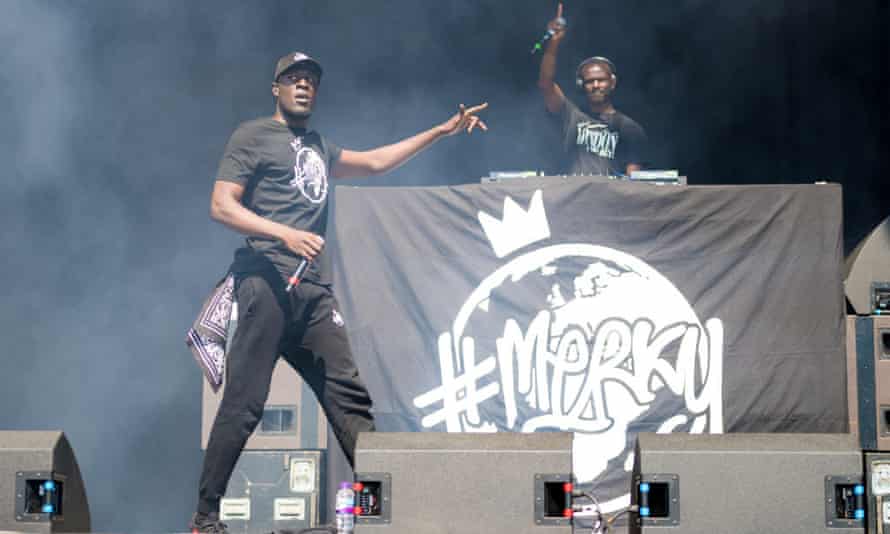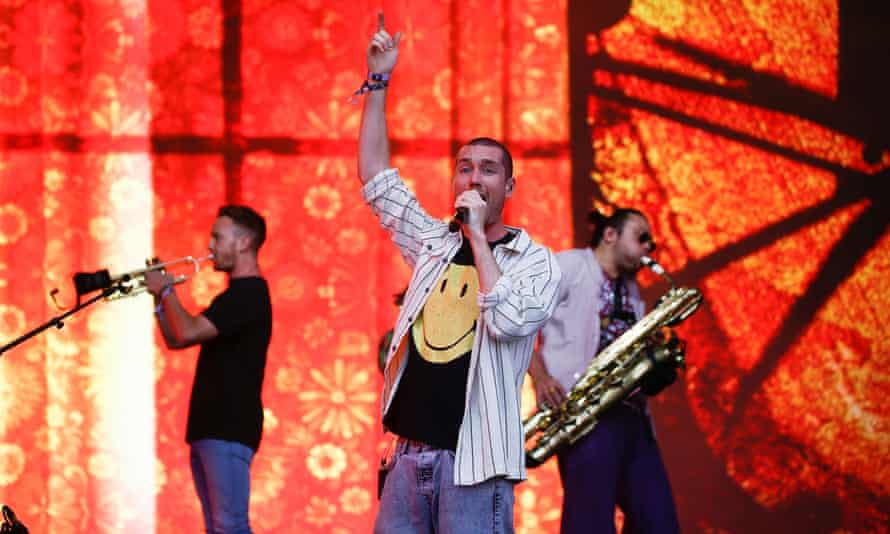Millions of tickets have already been sold and headlines from Keane to Stormzy are preparing to return to the stage, but organizers of hundreds of live music festivals slated for this summer are warning if the government does not follow other European countries and offers this if you take out Covid cancellation insurance, you may have to pull the plug.
The national reopening schedule, largely unchanged since it was announced in February, will allow mass gatherings from the end of June. However, planning a post-pandemic event carries significant financial risk, as a local or national spike in coronavirus cases could result in a short-term cancellation by health authorities, causing huge losses to the festival organizers.
In the past few weeks, the sold-out 66,000-seat Boomtown festival near Winchester and Shambala, due to take place on the August holiday weekend in Northamptonshire, was the last event to be canceled due to a lack of insurance.
The organizers of Boomtown blamed the government’s lack of Covid-specific cancellation insurance for their decision and wrote on Twitter: “There is no safety net that can be supported. This means that we would play up to an 8-digit loss should the event not be able to take place due to Covid restrictions, which would seriously jeopardize the future of the festival. “
 Stormzy and DJ TiiNY on stage during the TRNSMT Festival in Glasgow, 2017. Photo: Roberto Ricciuti / WireImage
Stormzy and DJ TiiNY on stage during the TRNSMT Festival in Glasgow, 2017. Photo: Roberto Ricciuti / WireImage
Government-sponsored insurance is the “big missing piece of the puzzle,” said Greg Parmley, executive director of the live trade association. “There is no commercial insurance for coronavirus. Other governments are strengthening and helping; We feel like we are banging our head against a wall. We’re seeing a steady stream of cancellations and it will get bigger by summer. “
The music industry, festival organizers and event organizers have been calling for a state compensation system for several months. This would work like a form of insurance by providing financial assistance when events are hit by the coronavirus crisis, similar to the film and television production restart announced last July.
European countries including Austria, Denmark and Sweden have launched such programs and the Dutch government recently set up an event cancellation fund of EUR 300 million (GBP 259 million) to support music, business and entertainment Cover sporting events scheduled from July 1st to the end of the year.
The average cost of running an independent festival is £ 6 million, according to the Association of Independent Festivals (AIF). Approximately 40% of payments, including non-refundable deposits, are due one month in advance.
According to Paul Reed, the AIF’s chairman of the board, who oversees 85 events, more cancellations are expected as the crisis looms.
“Unfortunately, as the organizers have to get closer to these costs, your decision not to take that risk will become increasingly understandable,” said Reed. “If for some reason the event couldn’t be done for a Covid issue, it would go bankrupt for an independent company.”
A crowd of thousands of people gathering to eat, drink, and dance still seems like a distant prospect, even though festivals are mostly outdoors. However, the UK government easing the lockdown assumes the restrictions will be lifted entirely from June 21st.
In April and May, the UK government will conduct trials of mass gatherings and indoor events to evaluate how the venues could safely function this summer. The first “almost normal” concert will take place on May 2nd in Liverpool when the band Blossoms plays in front of 5,000 fans who need a negative Covid test result but do not have to wear masks or social distance.
Consumer demand for live events has rebounded, and some of the UK’s biggest have vowed to carry on, albeit without insurance, including the Stormzy and Liam Gallagher-led festivals in Reading and Leeds. However, Glastonbury will not be welcoming its 210,000 viewers for the second year in a row.
After the announcement of the national roadmap, 2 million tickets were sold in just 72 hours for events in which the independent festival production house The Fair is involved, according to its managing director Nick Morgan.
 Bastille is slated to play at Latitude 2021. Photo: Henry Nicholls / Reuters
Bastille is slated to play at Latitude 2021. Photo: Henry Nicholls / Reuters
From daytime festivals in London like Eastern Electrics to multi-day gatherings like El Dorado at Eastnor Castle in Herefordshire, those 140 events are 90% sold out, Morgan said.
Some festivals have shifted from early to late summer in hopes of hosting a sizeable crowd. The Hampton Court Palace Festival, located in the former home of Henry VIII near Richmond-upon-Thames, has postponed its series of evening concerts by Tom Jones and Keane from June to August.
The concentration of further events in September brings its own challenges. “It’s a much shorter season, there are fewer kit-like stages because everyone competes on the same weekend,” said Morgan. “There are more shows every weekend than ever before.”
Organizers found that owners of equipment such as fences and railroad tracks were selling them to construction companies in 2020, desperate to raise money after shutting down live events.
Still anxious to welcome music fans back, the organizers are working on how best to keep them safe, even though the organizers have said that social distancing will not be possible. The Latitude Festival, which takes place in Suffolk in July, has announced that it will test festival goers who have not been vaccinated against Covid prior to entry and will refund all ticket holders if the event is postponed or canceled.
Events like Womad and the family-oriented music event Standon Calling are considering sending out Covid tests to attendees prior to arrival, especially since younger viewers are unlikely to have been vaccinated by the summer. Both festivals have committed to reimbursing ticket holders who tested positive and are unable to attend.
Founded by Peter Gabriel, Womad hopes to welcome its usual 40,000 crowd to its Malmesbury, Wiltshire home to watch artists like Anoushka Shankar and Nitin Sawhney, albeit on a 30% larger site.
“There is a real hunger to be out there again to meet, say hello, hug, do all the things we have been denied for so long,” said festival director Chris Smith. He added, “This year is about reassurance. Even if the restrictions are lifted, there are people who want to come but ask, what do we do? “
The festival plans to provide spectators who want space from other guests with a “womat” that they can place on the floor to delimit their area.
Meanwhile, the Glyndebourne Opera Festival in Sussex is promising summer season ticket holders that as part of its Covid-19 safety measures, only non-recirculated air will be used in the auditorium, while indoor socially detached seating will be available.
Standon Calling, a 17,000 capacity festival in Hertfordshire, will take place in July after its founder Alex Trenchard raised £ 90,000 through a crowdfunding campaign from regular participants last year and recently received a £ 400,000 grant from the government’s cultural restoration fund Has.
Trenchard believes Covid status certificates can help large events take place, but added that many questions went unanswered.
“It is important that the Covid certification is integrated into my ticketing via IT,” said Trenchard. “Otherwise you will have to bring in a lot of human input, which can lead to more errors and a time-consuming process.”
